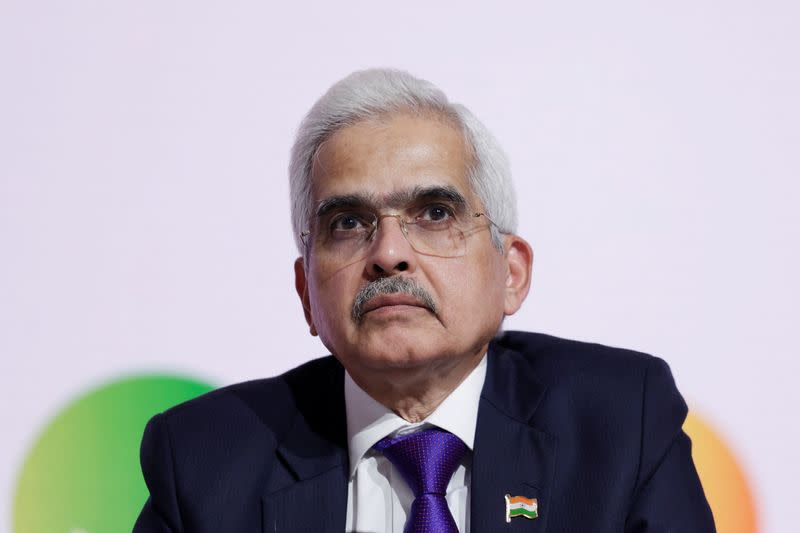India markets unlikely to see large volatility due to global bond index inclusion-Das

By Siddhi Nayak and Swati Bhat
MUMBAI (Reuters) - Indian financial markets are unlikely to see large volatility due to the inclusion of the country's government bonds in a key J.P.Morgan bond index, Reserve Bank of India Governor Shaktikanta Das said on Tuesday.
Last month, J.P.Morgan said it would include India in its widely tracked emerging market debt index, setting the stage for billions of dollars of inflows into the world's fifth-largest economy, which will help it finance its current account and fiscal deficits.
"The first thing that has to be recognised in this is that it's a kind of a vote of confidence about the Indian economy and about the Indian financial markets," Das said.
"We can handle large-scale inflows (and) we can handle large-scale outflows. So, therefore, I don't think we will see that kind of volatility. I think RBI has the capacity to deal with it effectively."
Das also said India's economic growth numbers for the second quarter of this fiscal year would surprise to the upside. The data is due at the end of November.
The economy grew at its quickest pace in a year in the April-June quarter, buoyed by strong services activity and robust demand, but a drier-than-normal monsoon season was expected to restrain future growth.
The governor reiterated that geopolitical risks are the biggest threat to the global economy currently but said India is better placed than most to deal with these risks and uncertainties.
He also said the country's banking and non-banking financial firms remain healthy and robust and the regulator was focusing on governance standards at these companies to ensure they continue to grow and remain resilient.
Das said the central bank was looking at the rate of attrition which has been high in certain private sector banks.
"We have asked them to look into it because every bank at the end of the day has to build up its core team which should really grow with the bank over the years."
(Reporting by Siddhi Naya and Swati Bhat in Mumbai; Editing by Savio D'Souza)

 Yahoo Finance
Yahoo Finance 